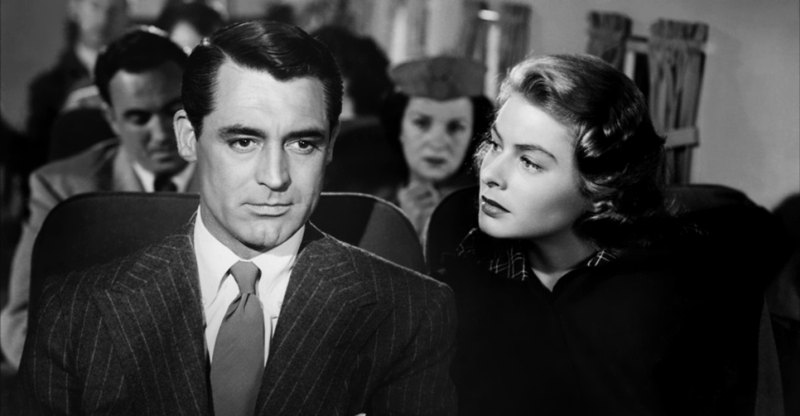By the 1930s and 40s most moviegoers came to know certain major studios for the kinds of movies in which they specialized. MGM had their musicals and costume dramas, Republic had their Westerns and serials, Disney had their animations, Universal had their monsters; you get the idea. Warner Bros. back then was well known for their gangster films. So it comes as no surprise that WB have enough material for yet another DVD package of gangster movies of the period, “Warner Bros. Pictures Gangsters Collection, Volume 4,” containing five more feature films and a full-length documentary. Counting their “Tough Guys Collection,” this one makes five box sets of such genre films that the folks at Warners have released; it’s quite a treat for fans of old-time movie hoods.
Let me say a word about four of the movies, and then I’ll go into greater detail on the one I like the best of the five. First up alphabetically is “The Amazing Mr. Clitterhouse” (938), starring Edward G. Robinson as a psychiatrist who joins a gang of crooks in order to study them! Humphrey Bogart co-stars as a real crook, and John Huston co-wrote the screenplay. Next is “Invisible Stripes” (1939), with George Raft as an ex-con who vows to go straight in order to keep his younger brother (William Holden) from following him. Bogart again co-stars as–what else?–a hoodlum. After that we get more Edward G. Robinson in “Kid Galahad” (1937), co-starring Bette Davis. Robinson is racketeer and a fight promoter, with Bogart as a rival promoter. Michael Curtiz directed, and he would go on to do better films with Bogart, namely “Casablanca,” just a few years later. Then, there’s “The Little Giant” (1933), with Robinson following up on the success of “Little Caesar” just a couple of years before, but this time with more humor than bullets.
The film I enjoyed the most, though, was “Larceny, Inc.” (1942), directed by Lloyd Bacon. Warner Bros. may have been making a killing off their gangster pictures in the early and mid 1930s, but by the late ’30s the genre’s popularity was beginning to fade; in addition to which, civic and religious groups, to say nothing of the Hayes Office, were pressuring Hollywood to tone down the violence in these movies and stop glamorizing criminals. The result was that Warners did a series of humorous gangster spoofs, several of them, like this one, starring their biggest gangster star, Edward G. Robinson. Bacon not only directed Robinson in “Larceny, Inc.,” he also directed him in the comedies “A Slight Case of Murder” and “Brother Orchid.” All three make for amusing, lightweight fun, with the biggest gangster star of them all, Robinson, parodying his own gangster-movie persona.
In “Larceny, Inc.,” Robinson plays J. Chalmers Maxwell, nickname “Pressure,” who is just out of Sing Sing Prison, having served two years on embezzlement and gambling charges. Now, he wants to go straight and open a dog-racing track and run it legitimately. The trouble is, he has no money, and the bank won’t lend him any because he has no collateral. So, he decides to do the next best thing: He’ll rob the bank to get the money he needs to go legit!
He’s got two pals to help him out: Jug Martin (Broderick Crawford), a big, dumb likable lug; he’s Steinbeck’s Lennie to Robinson’s George. And Weepy Davis (Edward Brophy), a con man. Brophy was a dependable comic sidekick in movies, an actor who showed up so often in the same kind of roles that Mel Brooks named a similar character after him in “High Anxiety.”
The three guys decide to buy a luggage store next to the bank and tunnel into the vault through the cellar. Woody Allen took this idea and used it in his 2000 comedy caper “Small Time Crooks.” More important, in 1971 some real-life English crooks did exactly the same thing in London, an operation chronicled in the 2008 film “The Bank Job.”
Needless to say, Pressure and his friends do not have an easy time getting into the vault. Instead, they have an easy time selling luggage. So easy a time, in fact, that they start making more money selling suitcases than they could possibly make robbing the bank.
Along for the fun we also find Jane Wyman as Denny Costello, a dead gangster’s daughter whom Pressure has been taking care of for twenty-odd years. It is Denny who tries to steer Pressure straight after his release from prison. (Note: There was a real-life gangster kingpin in the 40’s and 50’s named Frank Costello). Jack Carson plays Jeff Randolph, a fast-talking luggage rep. Carson was always playing fast-talking characters, usually in supporting roles as comic relief. Anthony Quinn plays Leo Dexter, a tough-guy ex con who wants to muscle in on Pressure’s bank job. And, finally, look for Jackie Gleason in a bit part as a goofy soda jerk.
S.J. and Laura Perlman wrote the play upon which Everett Freeman and Edwin Gilbert based their movie. Perlman was the same fellow who wrote several movies for the Marx brothers, and you’ll notice some similar banter and clever one-liners here. You can almost picture the three Marx brothers digging the hole in the cellar. “I wish you’d drop in and look over my lingerie some time,” says the owner of a neighboring women’s store to Pressure. Pressure responds in typical Groucho fashion, “Well, you drop in some time and look over my trunks.”
Success keeps coming Pressure’s way despite his best efforts to avoid it. “Larceny, Inc.” winds up a funny, charming, little crime caper. It feels a bit confined, due no doubt to its stage origins, but it never fails to raise one’s spirits.
Video:
All of the films in the set are in black-and-white and look good for their age. I suspect that like most of WB’s previous work with older films, they found the best-possible copies and spruced them up a bit, removing most obvious signs of age. You will find no scratches, blemishes, blotches, or excessive fades in the films. What’s more, B&W contrasts stand out well, and grain is at a minimum. There were moments during “Larceny, Inc.” when I noticed some slight fluctuation in the brightness levels, but that was about it.
Audio:
I can’t imagine the monaural audio sounding much better than on these discs, reproduced in Dolby Digital 1.0. It’s all midrange, of course, but it’s a quite smooth, natural-sounding midrange, making dialogue easy to understand. Background noise is practically nonexistent, so I suppose the Warners engineers applied a degree of noise reduction to it. Since there was probably little in the high end for the noise reduction to affect, it worked out pretty well.
Extras:
The most important bonus in the set is the 2008 documentary “Public Enemies: The Golden Age of Gangster Film.” Because it’s 106 minutes long, Warners accord it an entire disc to itself and divide it into twenty-two chapters. Alec Baldwin narrates it, and filmmakers, actors, critics, authors, and historians contribute to the historical overview and analytical examination of the American gangster movie. Besides the documentary, the documentary disc includes four Merry Melodies and Looney Tunes cartoons: “I Like Mountain Music,” “She Was an Acrobat’s Daughter,” “Racketeer Rabbit,” and “Bugs and Thugs.”
All of the discs in the “Gangsters” set come with extras, an assortment of audio commentaries, vintage shorts, cartoons, and trailers. Specific to “Larceny, Inc.” we find, first, a commentary by Haden Guest, Director of the Harvard Film Archive, and Dana Polan, Professor of Cinema Studies at New York University. Obviously, they provide a scholarly, erudite look at the film, perhaps more scholarly and erudite than the film deserves but fun to hear, at least for a while. Next up is a Warner Night at the Movies, 1942, a recreation of a few of the things moviegoers of the day might have seen: There’s a vintage newsreel; the Oscar-nominated short subject “Winning Your Wings,” directed by John Huston; two classic cartoons: “Porky’s Pastry Pirates” in black and white and “The Wabbit Who Came to Supper” in Technicolor. Things at the Warner Night wrap up with a trailer for “The Big Shot” with Humphrey Bogart.
Finally, the bonuses conclude with twenty-six scene selections; a trailer for “Larceny, Inc.”; English as the only spoken language on all the discs; with French subtitles and English captions for the hearing impaired.
Parting Thoughts:
I can’t say that the five films in Volume 4 represent the very best of the Warner Bros. gangster pictures, which is understandable since the studio released most of their better stuff previously, movies like “Little Caesar,” “The Public Enemy,” “The Roaring Twenties,” “Angels With Dirty Faces,” etc. But for the fan of older movies, there are still some good pickings here, with “Larceny, Inc.” leading the way. It’s a cute and harmless film, with Robinson in fine form, an excellent supporting cast, and an abundance of good one-liners worthy of writer S.J. Perlman.


